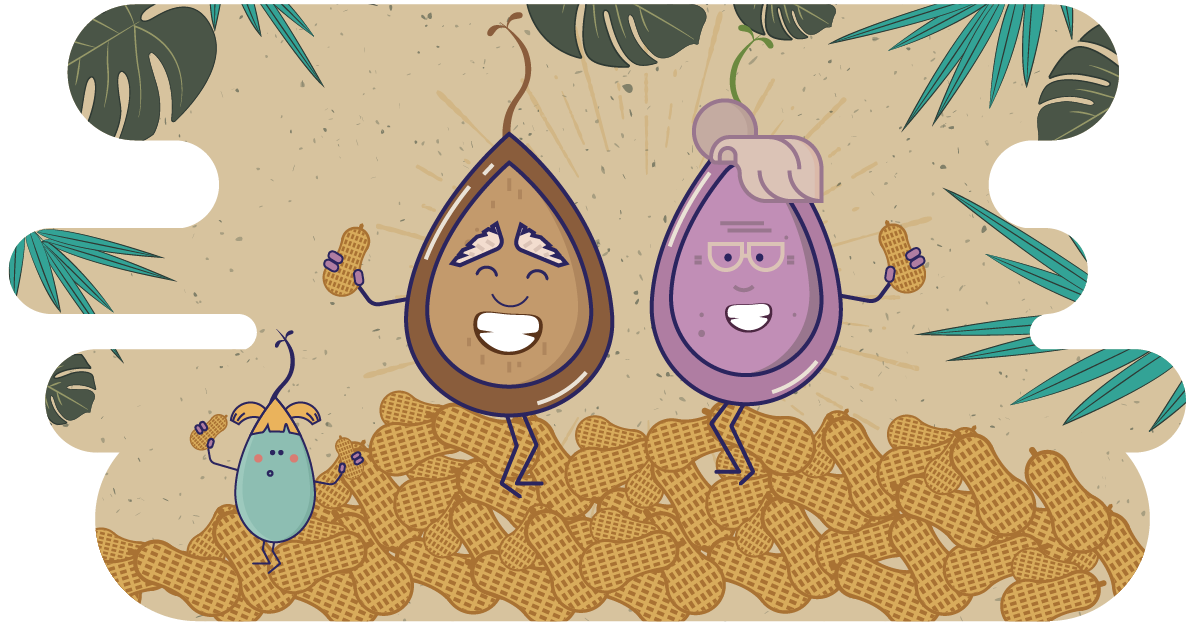The 5 Pros of Perennial Peanuts for Lawns and Cover Crops
Share

“No comments from the peanut gallery!”
The “peanut gallery” used to have a negative connotation, representing the cheap seats at theaters and performance spaces. Hancock Seed wants to reverse that trend.
A “peanut gallery” is actually a great thing to have going on your farm or lawn!
Perennial Peanuts aren’t the kind you eat while watching a baseball game. Instead, these are one of the most effective cover crops available to farmers in Southern states. You might not get any delicious snacks out of these nuts, but you’ll get plenty of less expected benefits. We’ve broken these advantages into five descriptors:
SELF-RELIANT
We wish that we could hire farmhands that understood the job before they even begin. Understandably, training is necessary for things to be done right. Seeds are similar: They need help, in the form of some TLC.
Perennial Peanuts, on the other hand, are usually happy to help themselves. They are about as drought-resistant as can be, and often don’t require any supplemental water aside from the usual rain. It uses bacteria to convert atmospheric Nitrogen for its own use, as well as “mining” Phosphorus from the soil. If your soil possesses a healthy amount of Phosphorus already, you won’t need to add more. Test for Potassium and add fertilizer accordingly.
Perennial Peanuts are also open to a range of pH levels, settling with anything between 5.0 and 7.5.

RESILIENT
Perennial Peanuts are ready to stand up for themselves. We mentioned it already, but these guys are prepared to deal with dry seasons and drought. This cover crop has also proven itself resistant to disease, nematodes and even insects.
Just a warning, however: You might not want to snack on Perennial Peanuts, but many other species will! Squirrels are notorious for their love of Perennial Peanuts; they won’t even wait for the “nut” to grow. Take care to protect the seed after you scatter it, or you could see it disappear into squirrel cheeks in minutes!
STRONG
Perennial Peanuts are all-around strong defensive players. They do more than just hold back disease, nematodes and insects...they also hold back soil as well as any cover crop!
Peanuts are rhizomal plants, meaning their stems continuously grow underground. These rhizomes also put out roots and lateral shoots, which result in a system that provides erosion control better than non-rhizomal plants.
ENVIRONMENTALLY-FRIENDLY
Southerners are understandably nervous about introducing a foreign plant onto our soil. That’s how kudzu became “the plant that ate the South”!
Perennial Peanuts don’t reproduce by seed, however. This means that animals cannot spread the plant by digestion or by getting it stuck in their fur. The only way to transfer a Perennial Peanut is to dig up its rhizome and move it somewhere else. Therefore it’s easy to keep this cover crop under control.
PRETTY
Physical appearance shouldn’t be the first thing you look at when you buy a cover crop...but it’s a nice cherry-on-top!
Perennial Peanuts will bloom an attractive, bright yellow flower from Spring to the first frost of the Fall. This makes it one of our most popular products as an ornamental lawn option.















